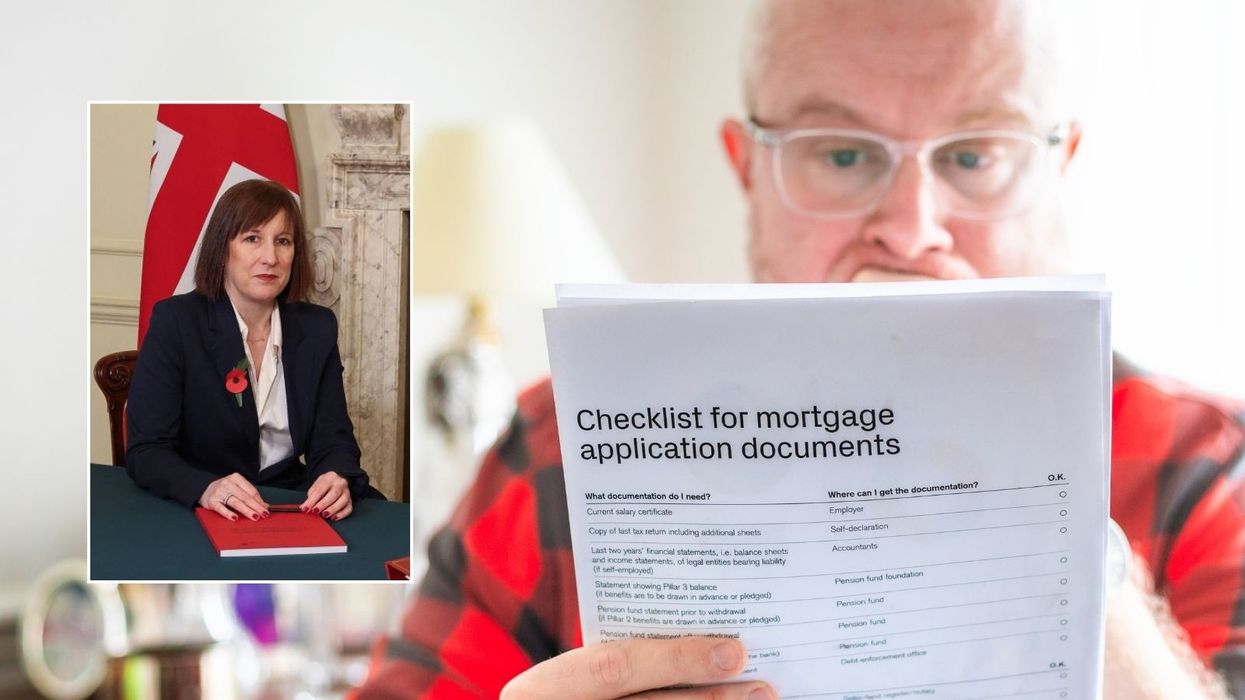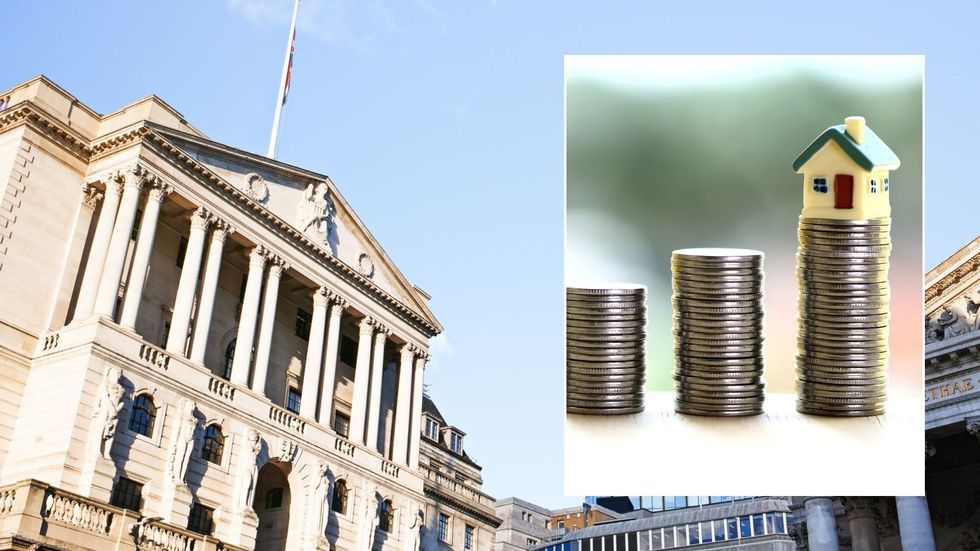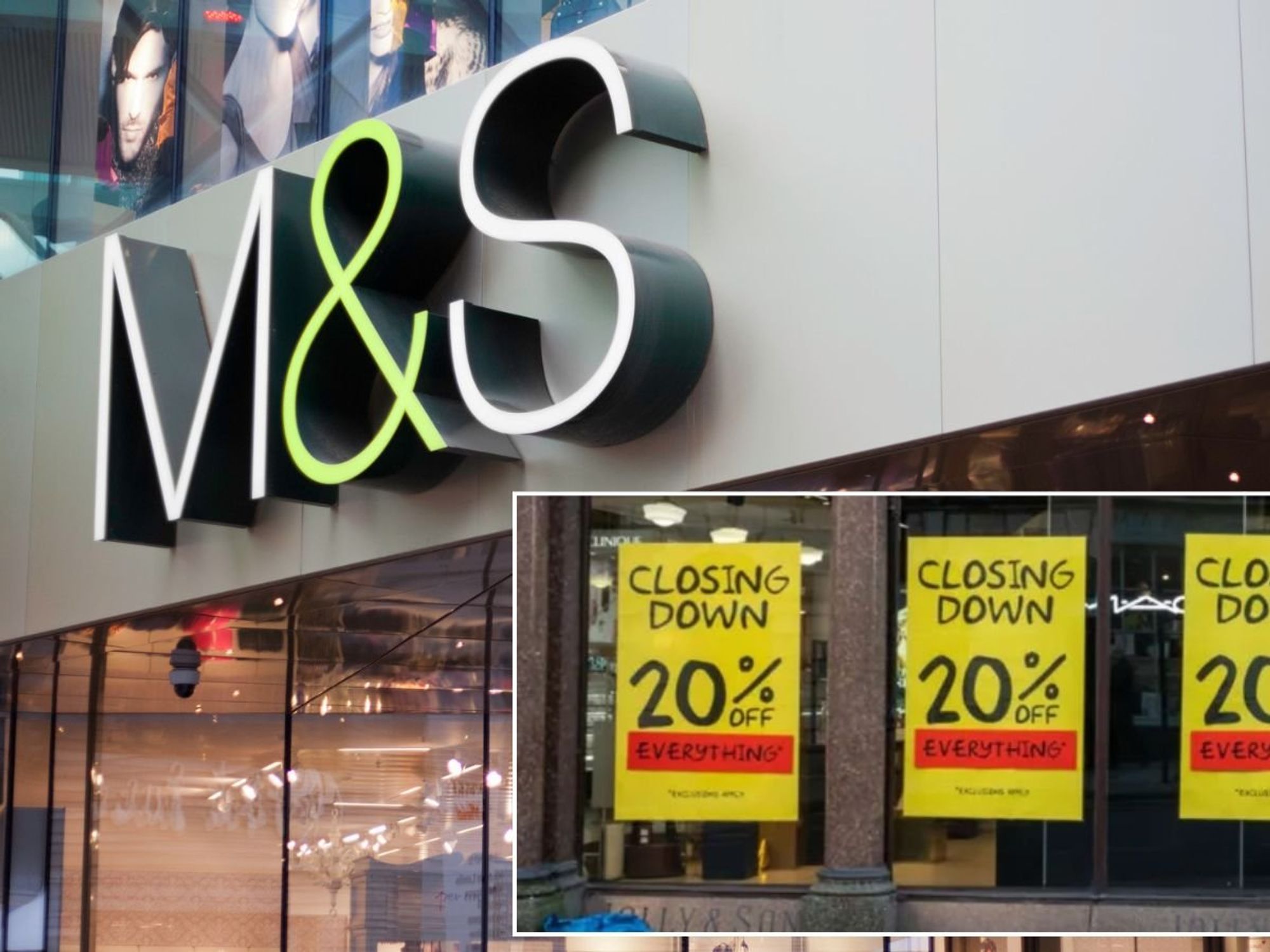'Major blow' for millions of homeowners as mortgage rates to rise after Rachel Reeves's Budget

Homeowners across the UK face "major blow" as mortgage rates are set to rise after the Budget 2024
|GETTY/PA

If interest rates go up by a quarter of a per cent, a first-time buyer borrowing £200,000 would be hit with a mortgage cost of £360 a year more, research shows
Don't Miss
Most Read
Latest
Homeowners across the UK face a "major blow" as mortgage rates are set to rise following Chancellor Rachel Reeves' recent Budget.
The average mortgage rates will climb from 3.7 per cent in 2024 to 4.5 per cent by 2027, according to the Office for Budget Responsibility (OBR).
The rates are likely to remain at that level until the end of the forecast period in 2030. At the last spring Budget, mortgage rates were set to hit a peak of 4.1 per cent before levelling out.
The OBR analysis said: “Average interest rates on the stock of mortgages are expected to rise from around 3.7 per cent in 2024 to a peak of 4.5 per cent in 2027, then remain around that level until the end of the forecast.”
The rise could deliver a significant blow to those looking to remortgage as they enter into new deals. Around 1.5 million people will need to remortgage at some point in 2024, with experts cautioning "it's going to hurt".
The increase in mortgage rates is partly due to borrowers coming off five-year fixed-rate mortgages taken out during the period of ultra-low borrowing rates from 2020 to 2022, as low as 2.3 per cent.
Most homeowners will be moving from deals costing less than three per cent to rates approaching six per cent, as seen throughout June and July. This shift is likely to result in far less affordable debts for many households over the next 12 months.
 Millions of homeowners are facing soaring mortgage cost | GETTY
Millions of homeowners are facing soaring mortgage cost | GETTY The Bank of England estimates that about two-thirds of fixed-rate mortgages taken out before rates started climbing in 2022 have already been refinanced, with the remainder set to expire by the end of 2026.
However, the OBR has raised its forecast for rising mortgages beyond this trend. Compared to its March forecast, mortgage rates are now projected to be around 0.3 percentage points higher on average over the forecast period.
Hargreaves Lansdown's Savings and Resilience Barometer for July 2024 found around one in five of those who have had to remortgage at a higher rate since the end of 2022 have "poor" or "very poor" financial resilience.
Sarah Coles, head of personal finance at Hargreaves Lansdowne added those who have already remortgaged have seen a "major blow" to their resilience, with an average of just £315 left at the end of the month, compared to £401 overall, and £410 among mortgage holders who haven’t yet had to remortgage.
She explained that: "Those who have yet to remortgage are likely to be on slightly higher rates than those who have done so since 2022 - and they’re remortgaging onto rates that are down from the peak.
"It means the jump in rates is going to be painful, but they don’t have quite the same gap to clear as those who came before them - who faced a rise from less than two per cent to more than 6.5 per cent in some instances."
Chancellor Rachel Reeves announced £40billion in tax rises, citing the need to address an alleged £22billion black hole in public finances.
Thomas Pugh, economist at RSM UK, noted that the Budget is expansionary, suggesting the Bank of England may need to keep interest rates 25 to 50 basis points higher than otherwise planned.
According to analysis by lenders L&C, if rates go up by a quarter of a per cent, a first-time buyer borrowing £200,000 would be stung for £360 a year more.
The OBR's analysis went on: “The high proportion of fixed-rate mortgages - around 85 per cent - means increases in Bank Rate feed through slowly to the stock of mortgages.
"Compared to our March forecast, mortgage rates are around 0.3 percentage points higher on average over the forecast, driven by our higher forecast for Bank Rate."
This fiscal approach is likely to contribute to the projected rise in mortgage rates, further impacting homeowners and those looking to remortgage in the coming years.
The OBR's latest forecasts indicate that inflation will also be higher than previously expected, partly due to the Chancellor's spending and borrowing plans.
Inflation is set to stay above the Bank of England's two per cent target until 2029, with predictions of 2.5 per cent this year and 2.6 per cent next year.
David Miles, an OBR member, said: "The inflation profile is a bit higher than it would have been if there hadn't been quite a substantial increase in spending."
The fiscal watchdog expects inflation to average 2.3 per cent in 2026, 2.1 per cent in 2027, and 2.1 per cent in 2028.
The persistent above-target inflation could have long-term effects on the UK economy, potentially influencing interest rates and economic growth in the coming years.
The OBR's forecast also touches on the housing market as price growth is expected to dip slightly from 1.7 per cent in 2024 to 1.1 per cent in 2025, as mortgage rates continue to rise.
However, from 2026 onwards, house prices are projected to grow by around 2.5 per cent annually, supported by nominal earnings growth.
The average UK house price is predicted to reach £310,000 by 2028, about 2.5 per cent higher than the OBR's March forecast.
Property transactions are expected to increase from around 275,000 per quarter in 2024 to approximately 350,000 per quarter over the forecast period.
The OBR anticipates a gradual recovery in housing starts, rising from a decade-low of about 100,000 in 2024 to around 160,000 by 2029.










